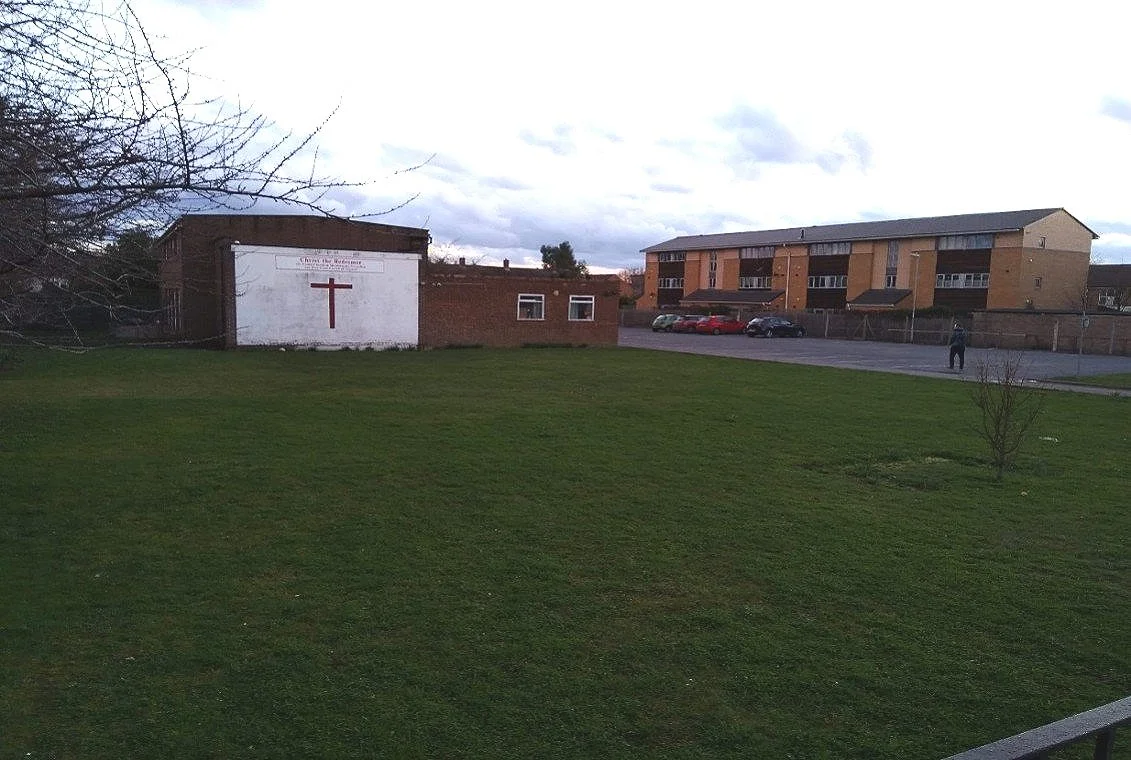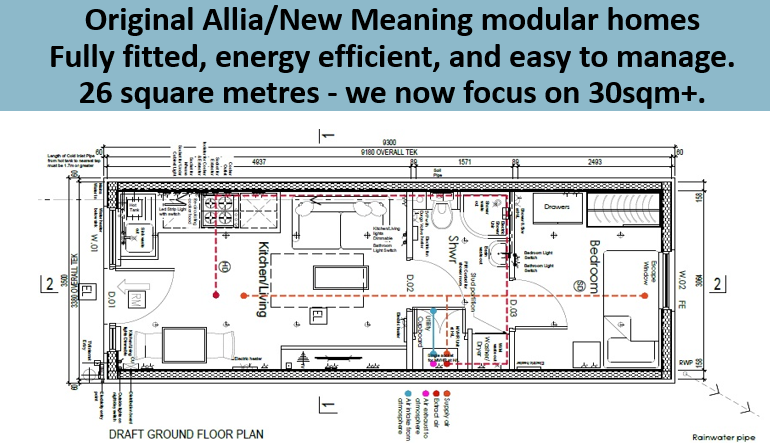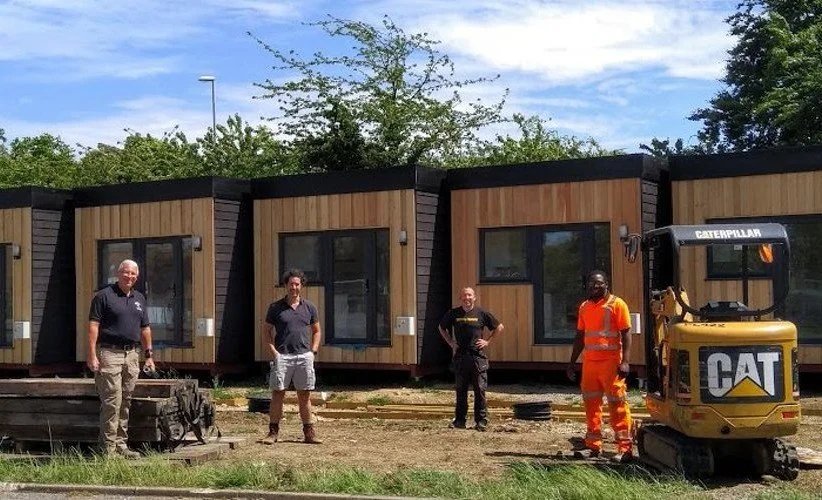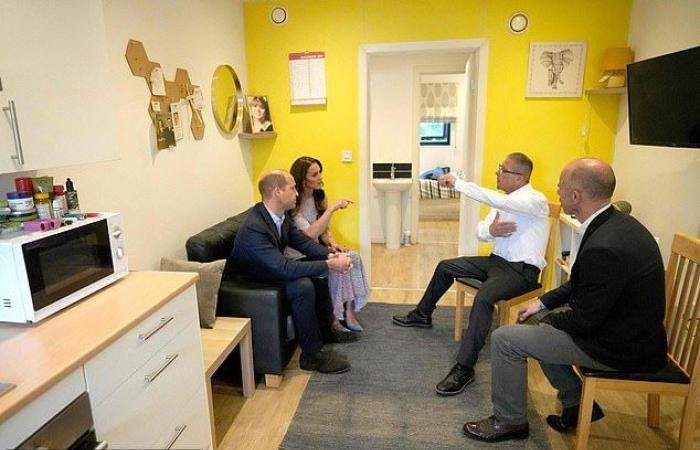Christ the Redeemer, Cambridge
The Story in Depth
The parish lies in one of the poorer parts of Cambridge, and the church wanted to build a supported modular home community for local homeless people. Read how they transformed an empty plot of land next to the church building.
-
Starting point
Cambridge is one of the most unequal cities in Britain, with people living locally on the poverty line alongside multi-millionaire owners of high-tech companies. Christ the Redeemer (CtR) is in Barnwell, one of the most deprived parts of Cambridge. The small congregation regularly reaches out to people from the neighbourhood who struggle with addictions, poor mental health and homelessness, and the church provides an important community hub.
The 1960s church building needs renovation and sits on a large plot of land. The site is due to be redeveloped as part of a wider regeneration project at some point, allowing part of the site to be made available on a meanwhile basis.
-
The plan
Four local agencies came together with the church and vicar to conceive a modular housing project for people experiencing homelessness:
· Allia (a social enterprise that supports start-up businesses and charities delivering social and environmental impact)
· Jimmy’s Cambridge (a local homelessness charity)
· New Meaning Foundation (a local social enterprise which trains disadvantaged young people through ethical construction)
· Cambridge City Council
The goal was to provide individuals experiencing homelessness with their own home and front door key and wrap-around support services designed to help them overcome substance abuse and other life challenges, so they can progress to living more independently.
Practically, the church provided a short-term lease on part of their plot to Allia at an initial peppercorn rent; Allia organised, managed and funded the project before leasing the six units to Jimmy’s Cambridge, who worked with the council on the allocation of the modular homes and support for the residents. The church provides friendship and occasional meeting space for the tenants.
-
The journey
The 25 sq.m. homes were manufactured offsite by New Meaning Foundation using modular construction techniques. Once complete, the homes were transported by lorry and craned onto the prepared site with simple screw pile foundations.
Planning permission for the construction was granted in 2019, on the condition that the project would be a transitional phase to help tackle homelessness in the city. However, the homes could be moved to a new site when the planning permission expires and/or the church is ready to redevelop the land permanently.
Since the homes were opened in 2020, the lease has been extended and most of the original residents have since moved on to a flat of their own, freeing up the homes for others who now enjoy those same benefits.
Modular design offers the option for both permanent or interim homes on church land. These Allia modular homes can be lifted back on lorries and relocated, either elsewhere on the site or to a new site.
-
Resources
· Purchase cost per home in 2020 was £33,000 plus £2,000 to furnish and equip each one. Value of development and site works was approximately £80,000. This was financed by Allia and some generous donors that Allia secured, including some who funded one or two homes each. The commercial loan is being paid off from the rent, which is covered by housing benefit.
· Several local stakeholders and construction firms offered financial or in-kind contributions towards legal services, planning consultancy, groundworks and on-site installation, engineering, landscape design and finishing, and fit-out such as upholstery, lighting, kitchen sink and countertops, and decorated walls. The total value of this was c. £60,000, plus significant time and project management contributions from Allia.
· Note that construction and most site works costs have since risen considerably, and the current cost per home is now over £60,000. The total scheme cost per home at June 2025 prices, including all site works and development costs would be £80,000 to £90,000 per home.
-
Keys to success and biggest challenges
Key elements to success for this and other similar Allia projects with local churches are:
· Clarity from churches on the land available, their preferred usage, the lease term and cost, and whether meanwhile or potentially permanent new homes.
· Team unity and skills, and continued engagement of multiple partners, especially the homelessness charity committed to ongoing support for residents.
· A competent organisation to oversee the project, providing a transparent and fundable plan, project management, adjacent community engagement, securing planning consent, fundraising and project delivery to required quality, in budget and on time. Experience suggests the ideal approach is a tender process and integrated contract with a reputable builder.
Challenges:
· This was the first project of its kind on a church site in Britain, so getting it right took time, learning along the way and overcoming a range of obstacles. Subsequent projects have been less time consuming, but they still need to get multiple elements correctly delivered in a well-managed programme.
· The Covid pandemic impacted the latter part of the project, and completion was delayed for 3 months before residents moved in during June 2020.
-
Final outcomes
Six single men who were previously homeless now have a safe, secure and comfortable place to call home, with additional support coming from the vicar and church members. Since then, vacancies as people moved on to their own flat have created homes for a further ten residents; ultimately dozens of people who have been homeless will benefit from this empowering support and become more independent.
The Church Housing Foundation made a short video about this project which you can view here.
If you are interested in running a similar project, contact futurehomes@allia.org.uk











